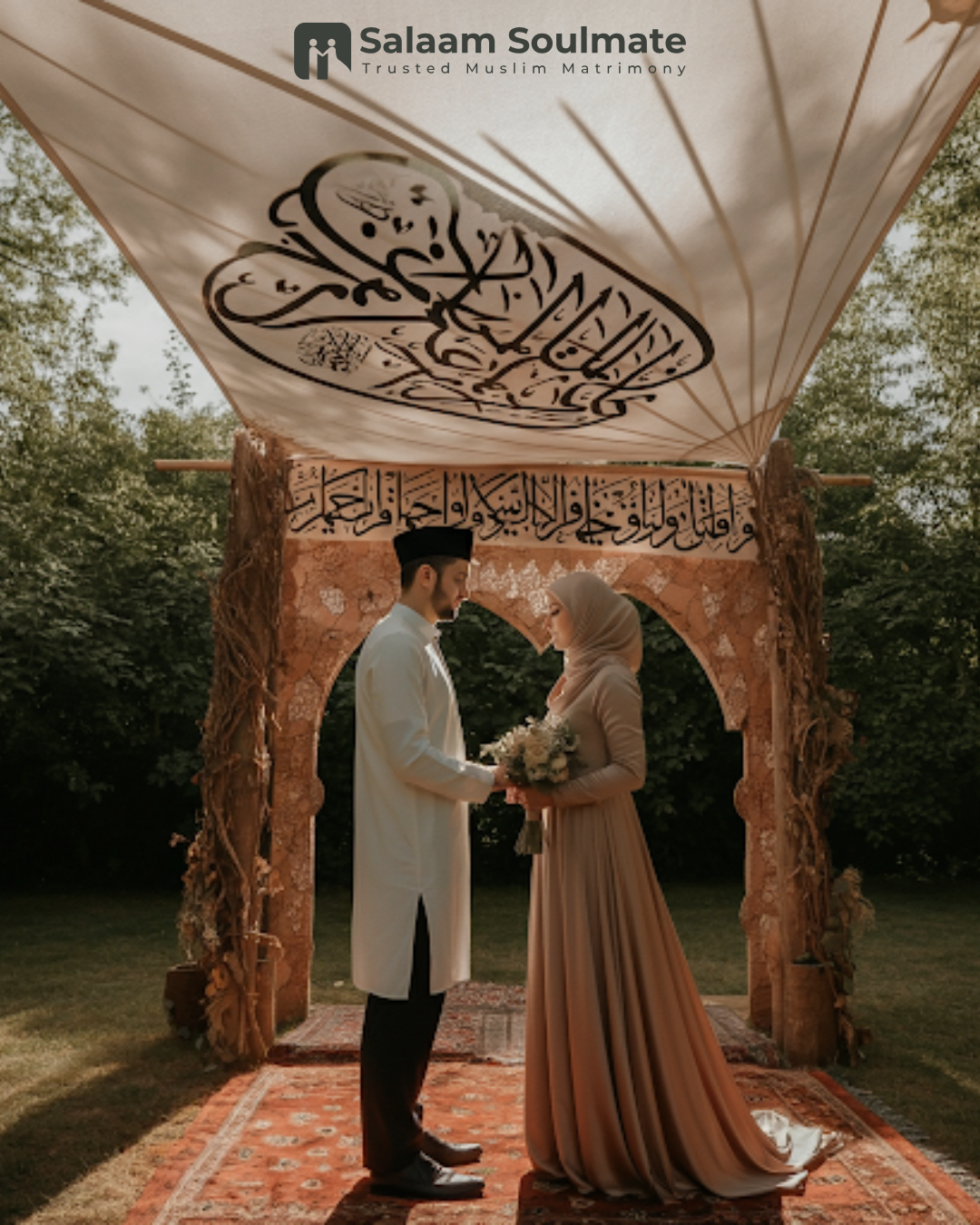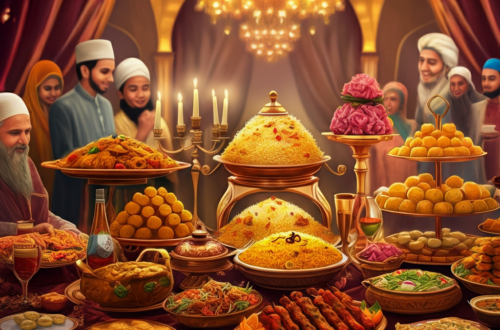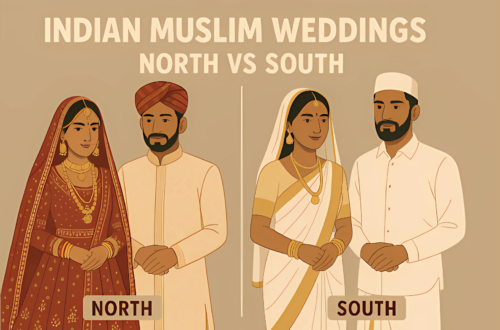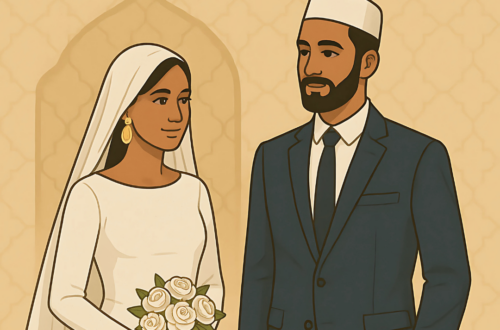Nikah in Islam is far more than a legal agreement; it stands as a profound spiritual act and a divine blessing. It is a sacred union designed by Allah to bring tranquility, mutual love, and compassion between two individuals. Highlighting the significance of Nikah in Islam is the Quranic verse in Surah Ar-Rum (30:21):
“And of His signs is that He created for you from yourselves mates that you may find tranquility in them; and He placed between you affection and mercy. Indeed in that are signs for a people who give thought.”
This blog will explore the immense spiritual, social, and practical importance of Nikah in Islam, discussing its essential requirements and its role in nurturing individuals and communities. By understanding its profound meaning, couples can better appreciate their responsibilities and the blessings embedded in this sacred institution.
The Spiritual Significance of Nikah in Islam
Marriage in Islam is not merely a worldly contract; it is an act of devotion and obedience to Allah. Nikah in Islam is seen as a Sunnah of the Prophet Muhammad (peace be upon him), reflecting the importance of this divine bond. A well-known Hadith in Bukhari beautifully affirms this:
“Marriage is my Sunnah; whoever does not follow my Sunnah is not one of me.”
Nikah in Islam brings emotional, spiritual, and physical harmony, offering partners a halal way to fulfill their natural desires. Beyond companionship, it strengthens one’s faith and contributes to spiritual growth. An equally powerful Hadith (Tirmidhi) states:
“When a man marries, he has fulfilled half of his religion, so let him fear Allah in the remaining half.”
The mutual love and mercy cultivated through Nikah align a couple’s relationship with Allah’s divine attributes. This bond is built on sincerity, faith, and mutual understanding. By adhering to these principles, Muslim couples not only strengthen their connection but also fulfill their religious and ethical obligations.
Join India’s leading Muslim Matrimonial platform, salaamsoulmate.com, and connect with your perfect match today!
Essential Requirements (Pillars) for a Valid Nikah in Islam
For Nikah in Islam to be recognized as valid, several specific requirements must be fulfilled. These essential pillars illustrate the sanctity and transparency of the marital commitment:
1. Consent of Both Parties
Islam emphasizes the importance of free will in marriage. Both the bride and groom must willingly consent to enter the marriage. Forced marriages are strictly prohibited in Islam and invalid under its laws.
2. Wali (Guardian)
Having a wali, typically the bride’s father or a close male relative, is required to protect the bride’s best interests. The wali also ensures that the marriage is conducted transparently and fairly.
3. Offer and Acceptance (Ijab and Qabul)
The formal exchange of vows during the Nikah ceremony is known as Ijab (offer) and Qabul (acceptance). This verbal agreement from both the bride and groom is essential to solidify the union.
4. Mahr (Dowry)
Mahr is the mandatory gift from the groom to the bride, symbolizing responsibility and respect. It can take the form of money, property, or any agreed-upon gift.
5. Witnesses
Two adult Muslim witnesses must be present at the Nikah in Islam to ensure fairness, prevent disputes, and uphold transparency in the marriage contract.
These pillars underline the importance Islam places on consent, fairness, and mutual respect in marriage, ensuring the rights and responsibilities of both individuals are honored.
Rights and Responsibilities in Nikah in Islam
Marriage is a balanced partnership, emphasizing both love and defined roles. Islam provides clear guidance on how Muslim spouses should treat each other, ensuring fairness and kindness while maintaining harmony within the family.
Responsibilities of the Husband:
- Providing Financial Support: The husband is obligated to provide for the family’s needs, including food, clothing, and housing.
- Kindness and Compassion: He must treat his wife with respect, love, and understanding.
- Spiritual Leadership: He should guide the family by encouraging devotion to Allah and setting a good example.
Responsibilities of the Wife:
- Respect and Support: The wife is encouraged to show respect towards her husband and offer support, especially in challenging times.
- Protecting the Household: She plays a vital role in maintaining marital trust and safeguarding the family’s well-being.
- Raising Children: She is responsible for nurturing and educating children in Islamic values and principles.
The Quran beautifully addresses these balanced rights and duties in Surah An-Nisa (4:34):
“Men are the maintainers of women because Allah has made some of them excel others and because they spend out of their property; so good women are those who are obedient, guarding the unseen as Allah has guarded.”
It is important to remember that these responsibilities do not justify unjust treatment. Both partners must prioritize mutual respect, effective communication, and cooperation to achieve a harmonious marital relationship.
The Social Importance of Nikah in Islam
Nikah in Islam extends its role beyond creating happy couples to fostering stable families and harmonious societies. By adhering to the principles of love, mercy, and justice, Nikah contributes to addressing fundamental social challenges.
Strengthening Family Units
The family is the foundation of society in Islam. Nikah strengthens family bonds and provides a stable, nurturing environment for raising children. Strong families promote a strong community.
Promoting Social Harmony
Islamic teachings about fairness and compassion within marriage help foster trust and ethical behavior in society. Kindness in individual relationships creates positive ripple effects on the broader community.
Preventing Societal Evils
Nikah offers a halal outlet for natural desires, which helps prevent societal issues such as immorality, infidelity, and the breakdown of families. It builds a framework for ethical living and collective well-being.
Addressing Contemporary Challenges in Nikah in Islam
Despite its timeless teachings, modern challenges require rethinking and adapting the understanding of Nikah in Islam. Consider the following issues:
- Cultural vs. Islamic Practices: Extravagant weddings, unreasonable mahr demands, or cultural expectations often overshadow Islamic principles. Following the prophetic model of simplicity is essential for a blessed union.
- Premarital Counseling: Counseling on financial management, conflict resolution, and mutual expectations can help couples prepare for a successful marriage.
- Domestic Violence and Divorce: Islam strongly condemns domestic abuse. Where divorce becomes necessary, it must be handled with fairness and empathy, as per Islamic guidelines.
- Digital Age Dynamics: With the rise of social media, fostering meaningful communication and avoiding misunderstandings in the marriage has become more important.
Couples should prioritize Islamic values while addressing modern challenges, ensuring their union stays grounded in faith and love.
Preserving the Sacred Institution of Nikah in Islam
Nikah in Islam is a divinely ordained institution that holds the power to bring peace, fulfillment, and faith into people’s lives. It is a union that provides a framework for love, respect, and personal growth under Allah’s guidance.
By reflecting on the spiritual significance, observing the required conditions, and navigating modern challenges, Muslims can uphold the sanctity of Nikah and benefit from the blessings it brings. Whether you’re planning to marry or already in a Nikah, striving for sincerity, kindness, and awareness of faith will help you create a strong and lasting bond.
For more guidance on Nikah in Islam or to explore additional resources, consider consulting knowledgeable Islamic scholars or local community centers. Together, we can preserve this sacred institution in its truest form and promote its values in our lives.






